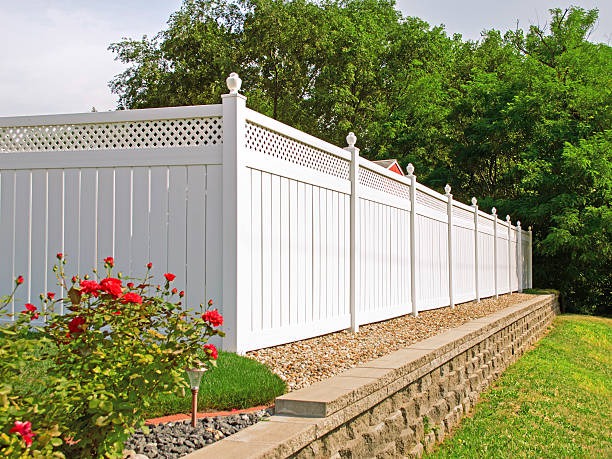When you’re thinking about installing a new fence, it’s crucial first to understand exactly what you need. Are you looking for privacy, security, or simply to enhance the appearance of your property? Knowing your goals will help you communicate effectively with potential contractors and ensure you choose the right materials and design.
1. Identifying Your Property’s Requirements
Assess your property to determine what type of fence will best suit its specific needs. Consider the terrain, soil type, and any potential obstacles like trees or existing structures. This understanding will be beneficial when discussing options with contractors.
2. Researching Potential Contractors
The next step is to research possible contractors in your area. You want to ensure they have a good reputation and the necessary skills to handle your fencing project.
Checking Online Reviews
Browsing through online reviews can provide useful insights into a contractor’s reliability and quality of work. Look for feedback on their professionalism, timeliness, and the durability of their installations.
Seeking Recommendations
Ask friends, neighbors, or colleagues for recommendations. They might have firsthand experience with reliable contractors and can offer valuable advice on which ones to consider or avoid.
After planning your fencing project, be open to exploring services in various locations, like Medina fence companies, to find the best fit for your specific requirements.
3. Assessing Expertise and Experience
Experience often equates to expertise, so you’ll want to hire a contractor with a solid track record. Look for businesses that have been operating for several years and have completed projects similar to yours.
Reviewing Portfolios
Ask to see a contractor’s portfolio. This will help you determine if their style aligns with what you envision for your property. A diverse portfolio indicates versatility and proficiency.
4. Verifying Licensing and Insurance
A reputable fence contractor should hold the necessary licenses and insurance. This not only protects you but also ensures the contractor meets certain industry standards.
Ensuring Valid Licenses
Verify that any contractor you’re considering has a valid and current license. This is a basic qualification that ensures they are legally permitted to perform the work.
Understanding Insurance Coverage
Confirm that the contractor carries liability and worker’s compensation insurance. This coverage protects you from being held liable for any accidents or damage that might occur during the project.
5. Getting Multiple Quotes
Once you’ve narrowed down your options, get quotes from several contractors. This will give you a sense of what the going rate is for your project and help you make an informed decision.
Comparing Costs
While it’s tempting to choose the cheapest option, remember that you often get what you pay for. When evaluating quotes, consider the overall value, including materials, craftsmanship, and warranty.
Discussing Budget and Payment Options
Be upfront about your budget and ask about payment options. Some contractors may offer financing plans that can make the project more affordable.
6. Paying Attention to Communication
Effective communication is a key component of a successful project. Choose a contractor who is responsive and willing to answer all your questions.
Evaluating Responsiveness
Notice how promptly a contractor returns your calls or emails. This can be an indicator of how they’ll communicate throughout the project.
Understanding Contract Terms
Ensure you understand the contract details before signing. Everything, including project timelines, costs, and materials, should be clearly stated in writing.
7. Exploring Material and Design Options
A good contractor will offer a variety of materials and design options. To suit your style and functional needs, consider traditional wood, modern metal, or low-maintenance vinyl.
Discussing Material Pros and Cons
Every material has its benefits and downsides. A knowledgeable contractor will help you weigh the pros and cons and make an informed choice.
For those opting for a sleek and durable option, exploring options for vinyl fence installation near me might reveal a variety of styles that align with your vision.
8. Evaluating Past Project Quality
Evaluating the quality of a contractor’s past projects is essential. This can provide assurance that they’ll meet your standards.
Visiting Completed Projects
If possible, visit a few completed projects in person. This firsthand look can give you a better perspective on the contractor’s skills and attention to detail.
Reading Testimonials
Testimonials from previous clients can provide personal insights. Seek detailed accounts that mention positive aspects of the contractor’s process and finished work.
Experienced Cleveland fence contractors might show examples of past projects to illustrate their capabilities, reinforcing your confidence in their workmanship.
9. Decision-Making
After doing thorough research and evaluation, compile all gathered information. Reflect on how each contractor measures up to your criteria and instincts.
Making an Informed Choice
Trust your instincts. If something feels off, it’s okay to explore other options. Your comfort and satisfaction with your choice are paramount.
Final Thoughts
Once you’ve made your decision, proceed with confidence. A successful fencing project can enhance your property’s aesthetics, security, and value. Ensuring you choose the right contractor means considering factors such as expertise, communication, reputation, and quality.
By diligently assessing these areas, you can hire a contractor who will deliver a fence that meets your needs and stands the test of time. Remember, the key to a successful outcome lies in the details and the careful selection of a contractor who understands your vision and has the capability to deliver.













More Stories
What Is the Best Type of Paint for Exterior Surfaces
Selecting the Right Materials and Techniques in Stone Masonry
What Should You Look for in a Top Custom Home Builder?